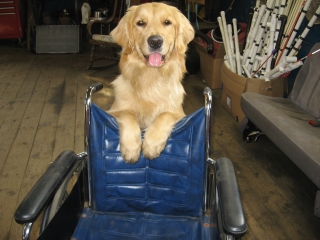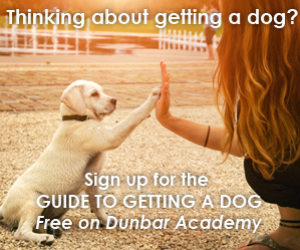Step it Up! A Higher Level of Socialization!

When dog training students enter into my classroom they quickly find out that there is nothing basic about their first course in basic training 101. As they enter the room they might find that I greet them at the door in a wheelchair. I am not physically disabled but there are millions of people who are. Every dog needs to know how to act and react when approached by a wheel chair or power chair, whether your intentions are therapy dog work or not, it’s simply an important part of a dog’s socialization skills. Working with disabled individuals for many years, I know firsthand how frightening it can be to an individual if they are approached by a barking, lunging dog.
Other tools in my tool bag consist of a variety of hats, sunglasses, canes, crutches, umbrellas and other miscellaneous items that every dog will be exposed to in their lifetime. Interestingly enough, many dogs are not exposed, at an early age, to the variety of novel things that they will eventually be exposed to in their lifetime. Non-invasive, early socialization, to a multitude of people, places and especially inanimate objects, will make the difference between a well socialized dog verses a dog that may become fearful as they develop. Pairing a high valued treat with the new person, place or thing establishes a postive association for the dog. I may teach half of my session from my wheelchair, tossing dog cookies, as I approach a dog, I may wear and change hats three or four times during that session and I try to wear different glasses, weekly. I may change my gait and shuffle across the floor, dropping tidbits of something good, as I pass by the dog and owner. I may, with permission, hug a dog’s owner and feed the dog a cookie at the same time. These simple exercises help dogs associate "positively" to otherwise, potentially scary situations, people, places or inanimate things.
So remember, to have a well adjusted, happy dog, one must integrate more than just treats and basic training 101 in their class curriculum. Many trainers are now setting up separate training/socialization classes for those interested in acquiring a Canine Good Citizen or for those interested in working towards a registered therapy dog team. Step it up, keep it interesting and have a fun time training your pooch to a higher level of Social Skills!




